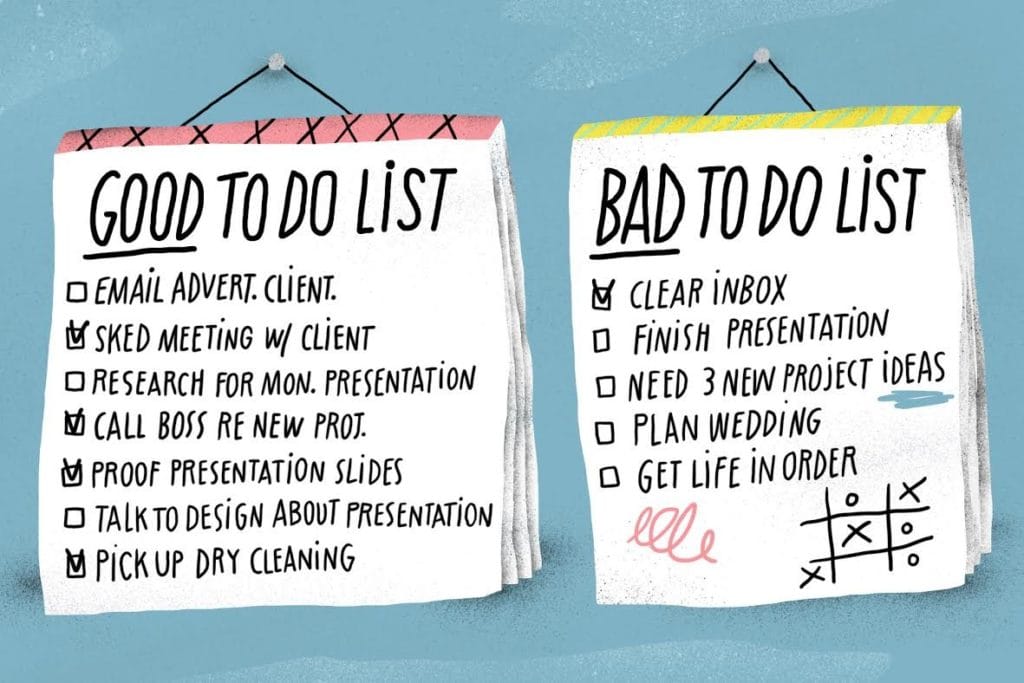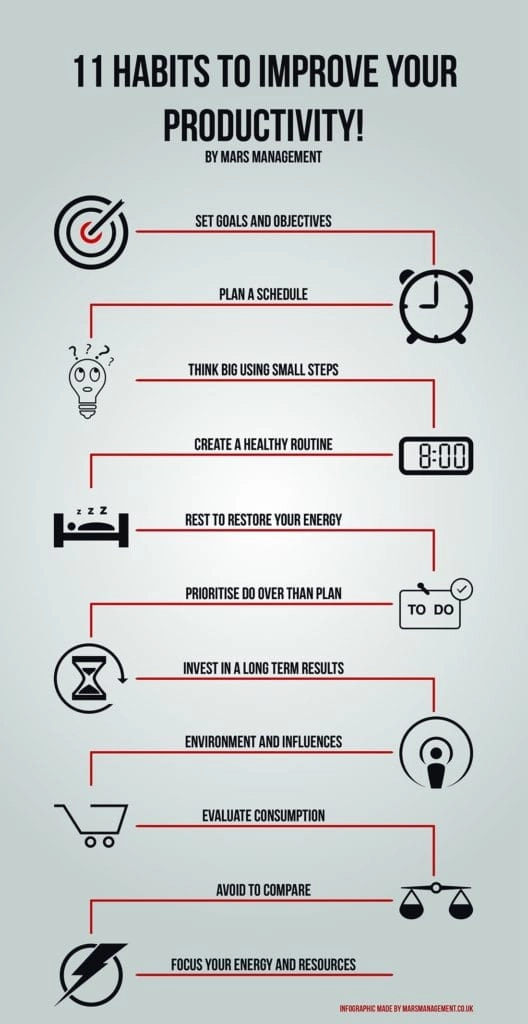Improving productivity is just as much about doing the right things as it is about managing those things. Below are strategies to improve your productivity.
Whether you are a manager, an employee, an entrepreneur or an intern, time management is a critical requirement for success. Each day comes with dozens of new tasks to be completed, new emails to answer, and new problems to solve. If your time is not managed well, you could be left with a whole pile of work on your desk at the end of every day and feel as if you have not done anything worthwhile with your time.
Management Strategies to Improve Your Productivity
Here are a few time management strategies that will help you to boost your productivity and get the most out of your day:
STRATEGY #1: Learn to strategize
The most important strategy for time management is to learn how to strategize. Spend the first 15 to 20 minutes of your day planning how you want to divide your time. To ensure the maximum use of your day, you must first write down the tasks that you wish to accomplish today and then sort them in order of priority. Set the high priority tasks for earlier in the day and lower priority tasks for later in the day.
Another important thing to keep in mind is to keep a few minutes interval between tasks in order to re-energize and re-focus, and also to make sure keep some free time in order to accommodate unforeseen or urgent tasks.

How to Improve Your Productivity at Work – Business Guides – The New York Times
STRATEGY #2: Use the 15-minute rule
The most effective time management strategy of all time is the 15-minute rule. It states that for maximum productivity, you must divide your workday into blocks of 15 minutes each. For example, in eight hours workday, you have 32 15-minute blocks. The logic behind this is that the human mind has its maximum level of focus for the first 15 minutes of a task, after which it starts declining.
STRATEGY #3: Communicate with your team
Effective communication is the key to an organized workplace and well-collaborated team. Here, communication does not refer to a ‘hello’ or a ‘good morning’. It means letting them know of their tasks and your schedule for the day so that they can plan their meetings accordingly. Nothing kills productivity like interruptions. Aside from aiding time management, communication is also a great tool for making sure that the teams are well coordinated, both among and within themselves.
STRATEGY #4: Leverage the power of emails
It is often seen that executives have very busy inboxes, filled with updates, reports, and schedules that need addressing. The most effective way to ensure that all the important ones are addressed and your team is updated on all important happenings is to leverage the power of emails.
Every morning, once you’ve strategized your day, make your first task going through your inbox – here you will have emails from the previous night. Address all important emails and then immediately after, send out an email to your time with your schedule for the day and the tasks and goals that need to be achieved by them. Then go about with your day as planned. At the end of the day, check your inbox once again – this time you’ll have updates from the day, progress reports from your team members and a few emails that talk about future events.

Mars Management Consultancy by Pedro Rodrigues
Repeat this process every day. In order to make sure that you do not miss any urgent meeting or matter, you can place notifications for when you receive emails from certain senders. The email is for a manager what a dagger is to the soldier – it is their weapon. Use it well.
STRATEGY #5: Delegate, delegate, delegate
One of the prerequisites of being a manager is having the ability to delegate a majority of your work. As a manager, you must master the art that is delegation. Effective delegation empowers your staff to work independently and confidently. You must be able to make sure that your team is working to bring together the pieces of the puzzle, and you are merely putting them together – that is the key task of a manager.
STRATEGY #6: Learn how to manage interruptions
Some days, as a manager, you won’t just be managing your company, division or people – you may also have to manage the interruptions. Despite setting a time on your schedule for impromptu meetings and a few unforeseen tasks, sometimes you may have to tend to other things that will completely break your chain of thought. Know well how to manage these interruptions. You can do so by understanding the causes and subsequent solutions for such occurrences.
If, at any time, there are too many of them, consider a time-sensitive open/shut door policy – so people can come to you with issues only during certain times. Another trick is to be aware of conversation ‘closers’, which are polite ways of firmly ending an unnecessary or ill-timed conversation. For example, after you’ve sorted out an issue but the client or colleague won’t leave you, you can say, “Well, I’m glad we got that sorted out. Let me know if it happens again.”
STRATEGY #7: De-clutter
Probably the most important strategy for optimum time management and enhanced productivity is a physical and psychological de-clutter. A physical de-clutter refers to organizing your office and your desk. Remove that stack of files and papers and only keep the things required for the task at hand. A psychological de-clutter, on the other hand, is to eliminate anything that might intervene in your concentration. For this, eliminate all distractions in your surroundings – put that phone away, you can reply to that text later.
Making good use of these tips will help to ensure you manage your time well. But do not overdo it. Know at what point it is best for you to take a break and when it is best to get back to it. Also, if you are in need of some tools to help you improve your productivity, here is a list just for you.




